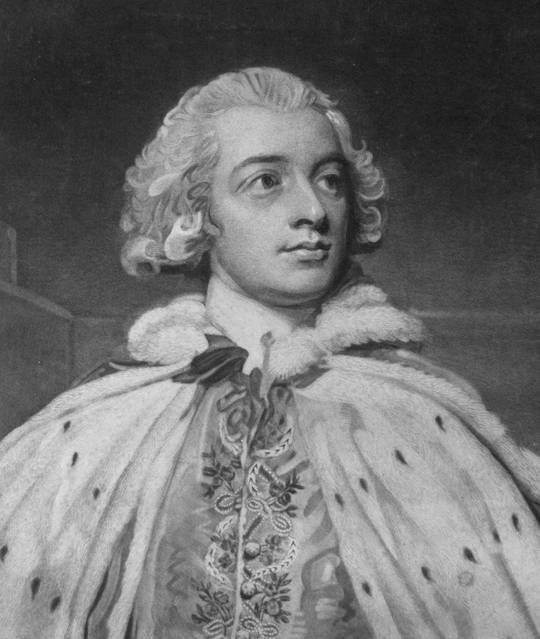John Fane (1759-1841) Tenth Earl of Westmorland from 1774. Lord Lieutenant of Ireland, 1789-94. Lord Privy Seal, 1798-1806, 1807-27. Westmorland was educated at Charterhouse and Emmanuel College, Cambridge, where he took an MA in 1778 and became friends with Pitt. (His Charterhouse connection – he became a Governor in 1819 – also gave him a link with Liverpool.) He became a captain in the Northamptonshire Militia in 1778 and continued to serve on a part-time basis, including during the Gordon Riots of 1780, becoming the regiment’s Lieutenant-Colonel by 1795, until in 1797 he raised a regiment of Volunteers and became its Colonel.
In 1782 Westmorland he married Sarah Anne Child (1764-93), the only daughter and heiress of the wealthy banker Robert Child (1739-82), at Gretna Green without her father’s consent. Child therefore cut the Fanes out of his money and left it to Sarah’s eldest daughter, Sarah Sophia Child Villiers, Lady Jersey (later a mistress of Lord Palmerston, but not of George IV – that was her mother-in-law). After Sarah Anne’s tragically early death in 1793 Westmorland married again in 1800 to Jane Huck-Saunders; the marriage was not happy and they separated after some years.
Westmorland was made Joint Postmaster General in 1789 and then Lord Lieutenant of Ireland with Cabinet rank, where he remained until 1794, being recalled because he opposed Catholic Emancipation, which Pitt favoured. After a spell as Master of the Horse, he was appointed Lord Privy Seal in 1798, serving in that office until the end of Liverpool’s ministry – apart from the short interruption of the Ministry of All the Talents in 1806-7. (Liverpool had persuaded Pitt to retain him in 1804.) He was thus Liverpool’s longest serving Cabinet minister.
In Liverpool’s Cabinet, he served as institutional memory. He had been a favourite of George III but, like Liverpool, he was not so close to George IV. He was one of the most solid right-wingers, opposed to Catholic Emancipation and a staunch supporter of the agricultural interest. When Liverpool suggested to him that a protégé lacked sufficient merit to be made a bishop, he harrumphed: ‘Merit, indeed – we are come to a pretty pass if they talk of merit for a bishopric.’1
Westmorland strongly opposed Canning’s changes in foreign policy, infuriating Canning by indicating as much to the new King of France, Charles X, when they met in Paris in 1824. Towards the end of Liverpool’s government, Westmorland’s relationship with Liverpool deteriorated and he became unpopular. He resigned when Canning became Prime Minister and was left out of Wellington’s government in 1828.
Mrs Arbuthnot described Westmorland, her first cousin, as ‘in his manners, rude and offensive to the greatest degree’ and ‘profligate and addicted to the society of the worst class of women which his age and his high rank render most unbecoming’.
[1] Gash, Lord Liverpool, p. 202.
